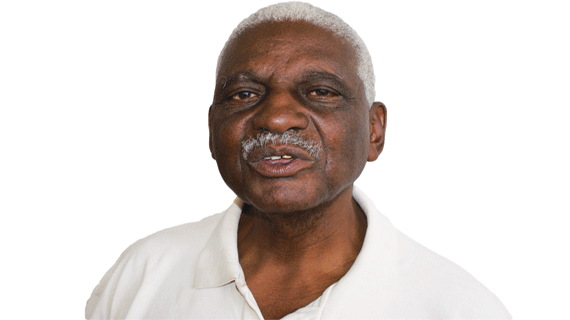
ONE is greatly heartened by the enthusiastic responses arising from the last article, Part 4 of this series.
-ISAAC Mpofu (UNYANDENI oMpofu)
Therefore, the battle is on. It must be fought to the finish. Our concern was, still is and ever will be what must we do to arrest and stop the death of the Ndebele language?
It’s no good just lamenting and shedding hot tears but doing nothing about it.
Here are some of the suggestions which may coincide with yours or may be an addition to what you have:
- The ZBC: A good medium for language development. Revive radio TV/Mthwakazi and allow other actors into the industry.
It is envisaged that this Radio/TV will serve the interests of this part of the country and will not end up being Radio/TV Mvengevenge.
It will uplift local languages: Venda, Sotho, Kalanga, Nambya and Tonga, full stop!
Ndebele will be the major language for all Ndebele sub-groups (Nguni, Sotho, Tonga, Kalanga, Nambya, Venda).
- Chamisa under fire over US$120K donation
- Mavhunga puts DeMbare into Chibuku quarterfinals
- Pension funds bet on Cabora Bassa oilfields
- Councils defy govt fire tender directive
Keep Reading
English will continue being used freely, but not dominantly. Ndebele will be the point of convergence for everybody in Ndebeleland.
All of us KoMthwakazi need to communicate effectively with each other in Ndebele which is common to us all.
ZBC should employ competent people in the Ndebele language and culture of the people to be en rapport with them. Otherwise, they will not have the required zeal for developing the region. We must not be shy to demand this right.
People must get used to hearing good language from Radio and TV which they listen to ever so often. Sub–standard broadcasting in sub-standard language corrupts the language and is easily copied especially by young people.
- Newspapers should start writing some of their news items in Ndebele.
The fear of devaluing the worth of their papers is immaterial.
Yes, resistance at first, but that will wear out.
I can imagine some professor or lecturer looking down at the newspaper. How pompous!
- Writers: Writing in English is becoming more and more popular.
There is a bigger market in that. But the patriotic instinct tells us that we need more literature in Ndebele (books, magazines, advertisements, invitations to functions etc).
Hawu , uze wehluleke ukuthi, ‘UMnumnzana loNkosikazi Ncube banxusa uMnunzana loNkosikazi Mthinsi emtshadweni wendodana yabo uNyonenkulu loNkosazana Sindisiwe Mlondo. . .” Khonokho nje bakithi. We find it fashionable to say: Mr and Mrs Ludubo have the pleasure. . .”, Hawu, makhiwa amnyama bakithi.
- Schools should increase the use of Ndebele in their teaching, and of course use the other sub-languages as well, but gradually increase the use of the shared language Ndebele which is common throughout the borders of Mthwakazi.
Teachers are enlightened people who should be proud of their calling.
Their calling is that of moulding people. It is sad and tragic that they too have failed to pride themselves in the promotion of their own customs and traditions, particularly their own language.
Parents, especially School Development Associations should help the schools by providing relevant materials like books for the libraries other than prescribed texts.
Parents should refuse, I mean refuse, to have their children taught Ndebele by a teacher who does not speak good Ndebele.
- A special Ndebele Committee should be put in place now, now with immediate effect. Within the next two weeks or so I personally will volunteer to bring together some of the interested , committed and knowledgeable individuals to form this committee.
- The Churches — my heart bleeds! One particular Pastor said to me, “Leave us alone. Our calling is to bring the message of salvation to the people. We will not be side-tracked by some of these trivial and fringe matters. What matters is not the language but the message going through by any means.”
I pitied him. He either went through a wrong seminary, or misunderstood also what was being taught or continues to fail to grasp the total Bible teaching in relation to the customs and traditions of a people.
We will continue to plead with churches, on our knees, to support the promotion of our language. Bafundisi, siyalicela, siyalincenga.










